Newborn Sleep: Tips for Better Sleep for Parents
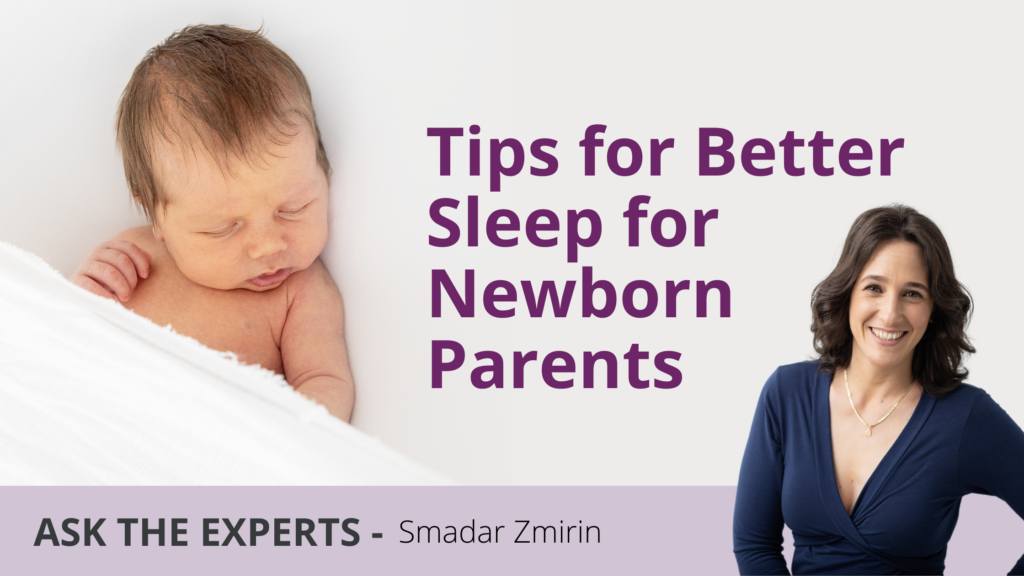
Becoming a parent is such an exciting (and slightly overwhelming!) time, and I’ve noticed that a lot of my new mums have plenty of questions as they step into this new part of their life. While I’m great at capturing your family’s special moments, I’ll admit I’m not always the best person to answer those baby-related questions as I’m not a mum myself! That’s why I’ve started this guest blog section. I’ve teamed up with people who work with babies and children every day and really know their stuff. Whether it’s tips on sleep, milestones, or navigating those early days, this space is all about making life that little bit easier for you.
This is a brand-new section for our blog, and I’m so excited to kick it off with an article from Smadar, a wonderful sleep consultant. She’s sharing her top tips to help your little one settle into better sleep routines (and maybe give you a chance to catch some rest too!). I hope you find her advice as intersting and helpful as I did.
Kia ora! My name is Smadar, and I’m a twin specialist with 15 years of experience working with twins. As a certified sleep consultant, I support families with babies aged 0-4 years. Based in Auckland, NZ, I also work with families all around the world.
While sleep training isn’t appropriate nor effective for newborn babies, introducing good sleep habits and environment can set the stage for restful nights ahead, for babies and parents alike. By establishing a consistent sleep environment, observe age-appropriate wake windows, introduce sleep cues, and regular feeding times, you can set babies up for success when self-settling or less hands-on settling is possible.
Here is how you can understand your newborn’s changing sleep needs, and help them get the rest they need during the day and night.
What Newborn’s Sleep Looks Like
Newborns’ sleep is unpredictable because their brains are still developing. They are essentially neurologically premature. Their blood system is filled with maternal melatonin (sleep hormone) which keeps them very sleepy.
At 4-6 weeks, as melatonin production is still underdeveloped, baby can be awake for long periods of time. At 6-8 weeks old, babies begin to produce their own melatonin. This mean their sleep duration extends, and night-time becomes more organised.
Newborn’s sleep cycle:
A Newborn’s sleep cycle lasts around 45-50min. 50% of their sleep is in light sleep, and that’s the first half!
- The first 25 minutes is light/REM sleep, which means baby can easily wake up. That’s why you may settle your baby to sleep, and then once you put them down in the cot they wake up.
- The next 20-25min is when your baby gets into deep sleep. This is the restorative part of sleep. When babies only sleep 20-25 minutes, they don’t reach deep sleep, and thus wake up without getting a good rest. They will tire out quickly (before their full wake window) and remain endlessly tired.
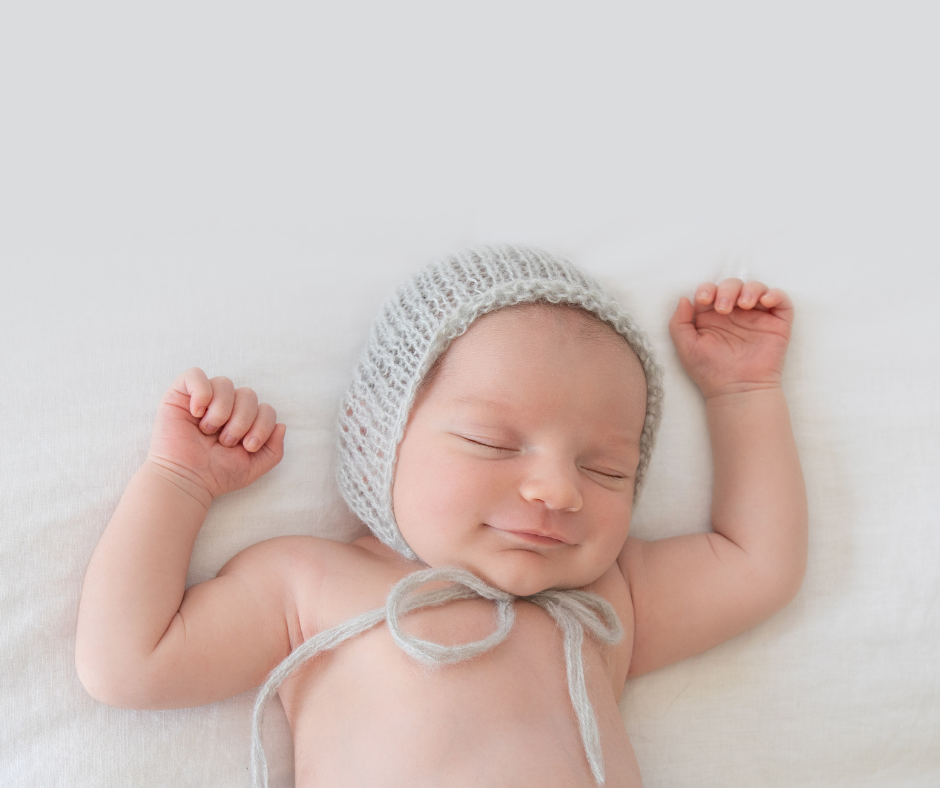
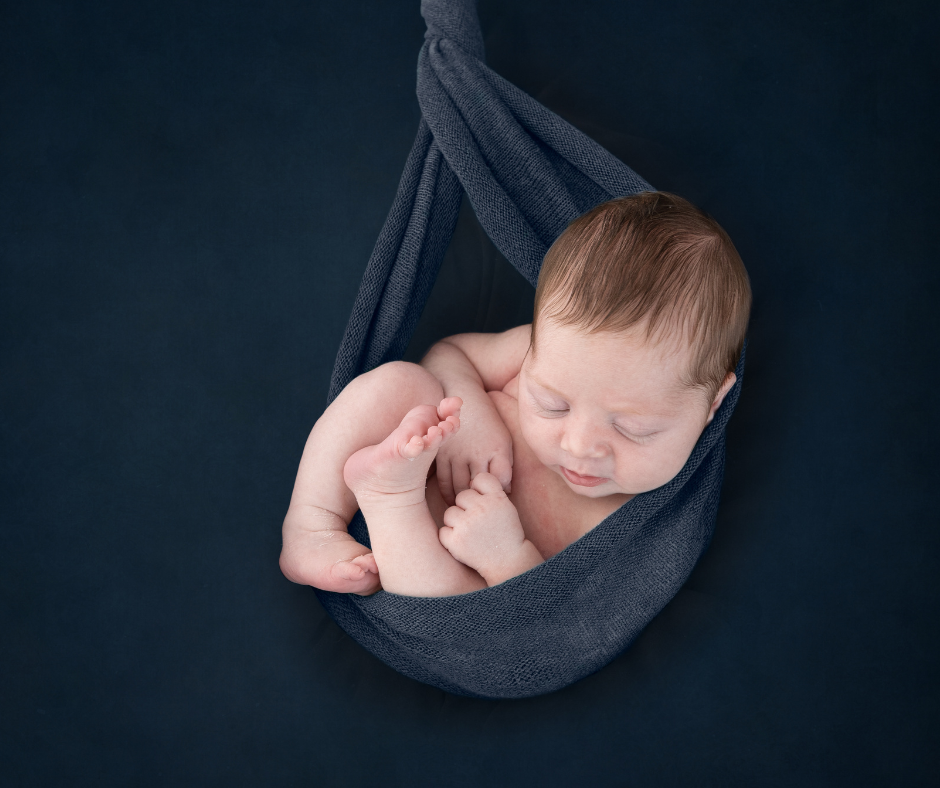
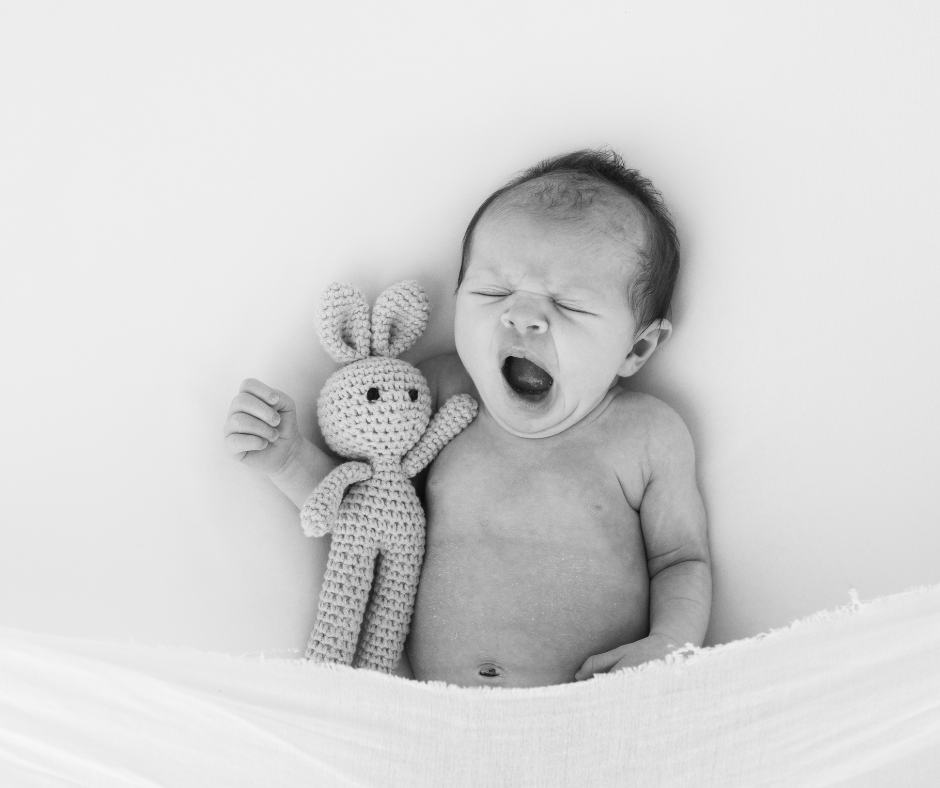
Before Settling Your Newborn to Sleep
Setting up a sleep routine can significantly improve your settling efforts.
Take your baby to their sleep space 10min before sleep is due, and darken the room. Swaddle your baby and sit and hug them until they are calm before actively starting to settle them. When this isn’t possible, swaddling early can help your newborn calm down and prepare for settling. Trying to swaddle an over-tired baby is like trying to swaddle a cat… It’s gonna be hard, and no one will feel good about it.
Newborns and Sleep Associations
These are things, places and people babies associate with sleep. When these are consistent, baby will associate them with sleep, and will use them to settle to sleep. There are independent sleep associations, and co-dependent sleep associations:
Independent sleep associations: white noise, lullaby, books, bath, dummy, darkness, swaddling.
Co-dependent sleep associations: Feeding, rocking, shushing, patting, bouncing, walking, contact sleep.
While most newborns tend to settle to sleep on their parents or while feeding, adding to their sleep routine independent sleep associations will help phase out the more co-dependent associations later on.
How Much Sleep Do Newborn Babies Need?
First month:
- Baby sleeps 16-17 hours a day. Premature babies can sleep even 18 hours or more.
- During this time baby has equal sleep time at night and day, and may struggle to stay awake for full feeds.
- Once reaching 2.7-3.2kg, baby can do a longer stretch of 3-4 hours sleep. As your baby gains weight, they can sleep longer and even have one 4-5 hours sleep in a 24hr period.
1-2 months:
- Baby sleeps 15-16 hours a day.
- Baby consolidates sleep for longer stretches at night, and sleeps 3-4 naps of 4-6 hours in total.
2-4 months:
- Baby sleeps 13-15 hours a day.
- Baby has 3-4 naps daily of about 2 hours. REM/light sleep stage is getting shorter, and non-REM/deep sleep stage gets longer. Your baby is getting ready to mature into a big baby!
Newborn’s Wake Windows
Newborns have very short wake windows. If your baby is premature, they will spend more time in the 1st month wake window, as they are catching up. Observing your baby’s wake window will help you avoid baby getting overtired. This in turn will help them settle down easier, and prevent them waking up before the end of their sleep cycle. Overtired babies are much harder to settle as they produce cortisol (the stress hormone). We all know how hard it is to try to fall asleep when we are stressed out or anxious. The same goes for babies. What’s more, the cortisol prevents babies from entering the deep sleep stage, which is why they are more likely to wake up after only 20-25 minutes, and the vicious cycle of fatigue continues. This is how cat naps start.
Newborn’s Wake Windows:
- 1 month: 40-60 min.
- 2 months: 1h 15-30 min.
- 3 months: 1h 45 min.
- 4 months: 2 hours.
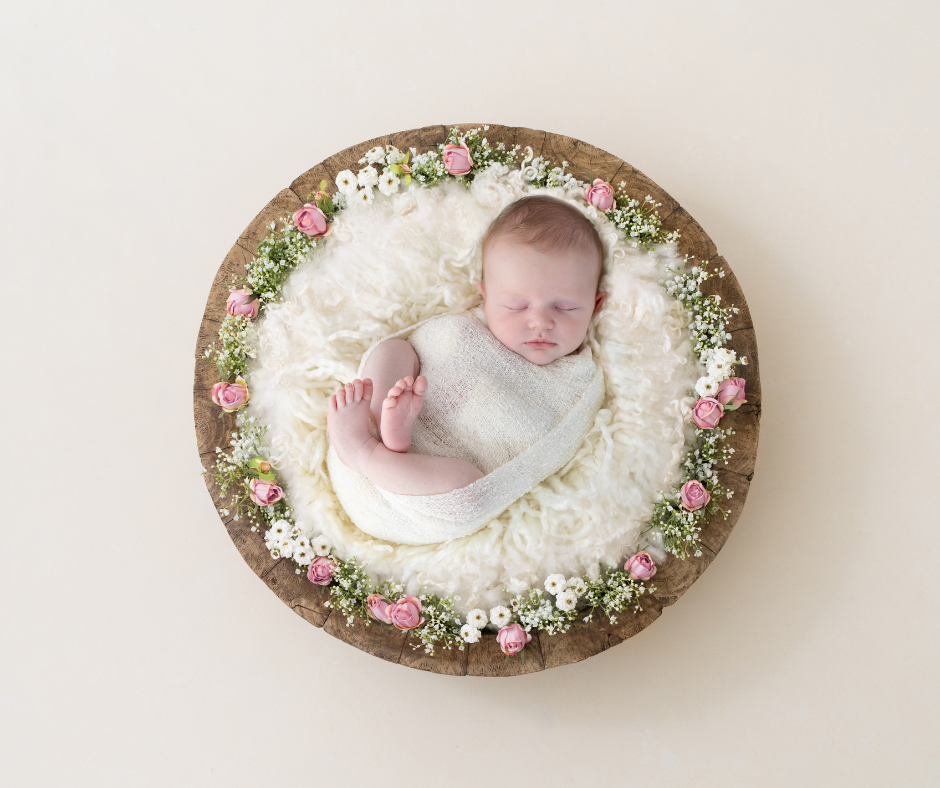
Circadian Rhythm and Newborn’s Sleep
This is the internal clock which begins to develop between 6-12 weeks of age. Circadian rhythm is set (entrained) by light, food and social interactions.
Baby’s body temperature becomes more consistent and rhythmical, day sleep patterns begin to establish, and day and night are more distinguished.
At 7 weeks, it’s time to bring bedtime closer to 6/7pm. This will help with the witching hour, and support your baby’s night’s sleep.
Dr Harvey Karp’s 5 S ‘s For Calming Down a Newborn
Dr Harvey Karp discovered that newborns can focus only on 2 things at a time. So, if your newborn cries and is hard to settle, Dr Karp has found these 5 S’s are invaluable in settling down your little one when the world becomes too much for them.
The order of this list is not random, so if you want to try these, go as indicated:
- Swaddling- swaddling has an immediate calming effect on babies’ nervous system
- Side/Stomach- place swaddled baby on their side or tummy
- Shushing- whisper shhhh past baby’s ear
- Swinging- Swing baby in your arms or on your lap
- Sucking- offer a dummy/pacifier
Dummies / Pacificers and Newborns
While it is very effective in soothing newborns, there are a couple important notes about using dummies/pacifiers:
- Use for sleeping, not settling, to not miss baby’s communication efforts
If we offer a dummy every time baby cries, we can’t quite know why they cried to begin with. We therefore only address the symptoms, not the actual issue. Another reason to wait before offering the dummy, is that baby might confuse the dummy for a feed, then will start sucking hard and waste precious calories and energy without getting energy and calories back. They then might not eat well when a feed is offered.
Note: If you are breastfeeding or planning to breastfeed, it’s best to wait 2 weeks before introducing a dummy/pacifier, to avoid nipple confusion.
- Remove by 4 months, or keep until 2.5 years old
If you don’t want your baby to have a dummy long-term, you can remove it after 4 months, once they are no longer newborns. If you do choose to keep the dummy it will become a sleep association. That is not a problem, as your baby gets older, they can learn to find and replace it as needed. They do get attached to it so it’s best to keep the dummy until they are 2.5 years old.
Keeping the dummy longer than that can compromise your child’s teeth and speech. So, when they are old enough to reason with, you can explain to them that now that they are older it’s time to say goodbye to the dummy. You can have a little ceremony or invite the “dummy fairy” to take it and replace it with a toy.
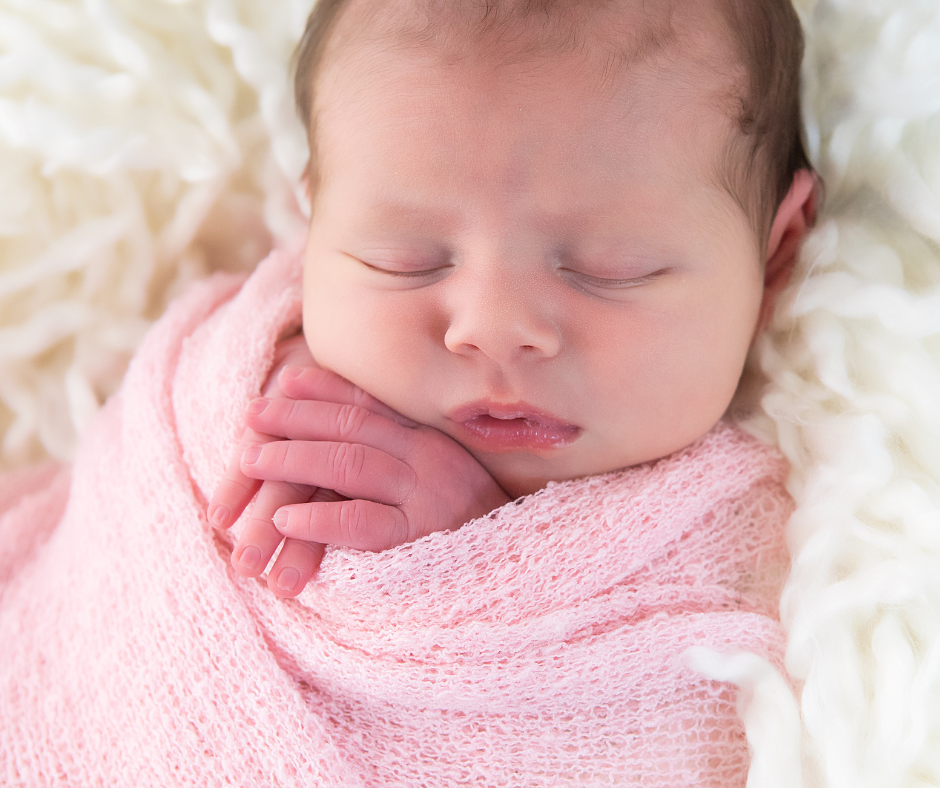

Establishing a consistent sleep routine, introducing independent sleep cues and observing age-appropriate wake windows, will form good sleeping habits and support your baby’s changing sleep needs. Then, the entire family can get better sleep.
If you want to learn more about how to best support your little ones’ sleep, you can read more about newborns and babies’ sleep in my sleep blog.
You can find more support and information for your twin family on my website, or follow me on Instagram @twinful_life
Be the first to comment